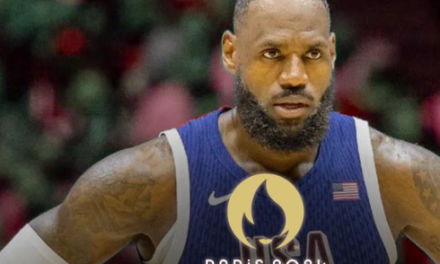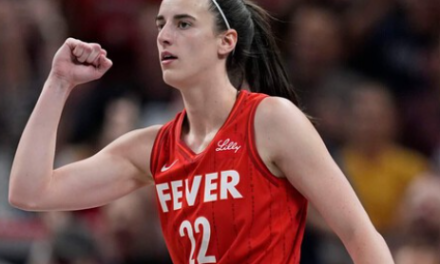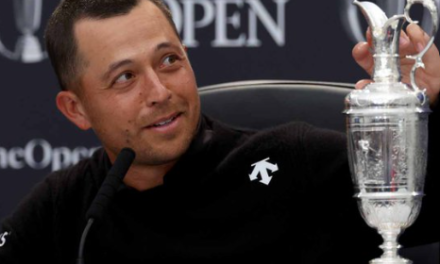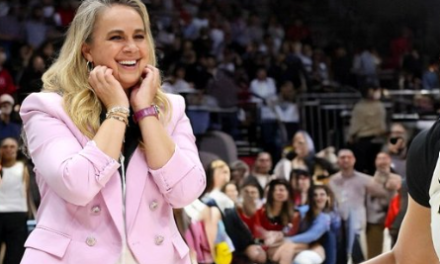Australian Olympic breakdancer Rachael Gunn, known to many as Raygun, has found herself at the epicenter of an online storm, a whirlwind of critique that has left her reeling. The 36-year-old B-girl, whose dynamic moves lit up the stage at the Paris Games, has been grappling with a wave of venomous backlash—something she never quite anticipated.
In a candid Instagram video, Gunn opened up about the emotional rollercoaster she’s been on, first expressing deep gratitude to those who have supported her along the way. “Your positivity has meant the world to me,” she said, her voice tinged with both warmth and weariness. But then, the tone shifted. “What I didn’t expect was the sheer volume of hate that’s come my way—it’s been devastating, to say the least.”
Rachel Gunn aka Raygun is what society has become today.
She came and fucked things up and WILL NEVER admit she wasn’t good enough, she will never admit her mistakes, she will only say “PEOPLE HATE ME”.
People like her will play victim until their mediocrity gets out of sight. pic.twitter.com/kd9wcfeiHO
— Anti Fan (@cptrpr) August 15, 2024
The internet, with its relentless appetite for memes and mockery, zeroed in on a particular moment from Gunn’s routine. A move where she kicks one leg into the air while leaning back quickly became known as the “kangaroo”—a not-so-subtle jab at her Australian roots. The memes exploded, the skits proliferated, and soon enough, her performance was being dissected across every corner of social media.
Gunn, however, was quick to clarify that she approached her Olympic journey with the utmost seriousness. “I worked my butt off,” she declared, “gave everything I had to this performance. Being part of the Australian Olympic team and representing breaking’s debut at the Games was an honor I’ll always cherish.”
Australian Olympics break-dancer Rachael Gunn, “Raygun” responds to criticism and says the online hate she’s getting is ‘devastating’… ‘please stop’
‘
‘
‘
‘#Raygun #Raygunn #Olympics #PARIS2024 #breakdancing #breakdance #athlete pic.twitter.com/EJ2xZoBzT9— Nosy Buzzer (@NosyBuzzer) August 15, 2024
Yet, beneath the surface of her public statements, there lingered an unspoken tension—rumors, accusations, whispers questioning how she even made the team. Gunn chose not to dive into the specifics but instead directed those with doubts to the Australian Olympic Committee’s (AOC) statements. AOC CEO Matt Carroll had come out swinging in her defense, stating unequivocally that Gunn’s selection was above board, a result of a transparent and independent process. He also lambasted a viral Change.org petition that accused Gunn of manipulating her way onto the team, calling it nothing short of defamatory. The petition, gathering steam with over 56,000 signatures, demanded apologies from Gunn and others involved, but Carroll dismissed it as baseless, labeling it “bullying and harassment.”
The Australian Breaking Organization, too, threw its weight behind Gunn, explaining that the selection process was rigorous, adhering to international standards set by the World DanceSport Federation. They condemned the global online harassment Gunn has faced, acknowledging the immense pressure she was under, especially given the level of competition in her group.
Even as Gunn faced this barrage, there were glimmers of support from unexpected quarters. Prime Minister Anthony Albanese, in a radio interview, gave a nod to her efforts, playfully remarking on her choice of attire, “Good on her for having a go—and doing it in a trackie. How Aussie is that?”
Australian Olympics break-dancer Rachael Gunn, “Raygun” responds to criticism and says the online hate she’s getting is ‘devastating’… ‘please stop’
Watch the full ‘break dance’ video here.. 👇
‘
‘
‘
‘#Raygun #Raygunn #Olympics #PARIS2024 #breakdancing #breakdance #athlete… https://t.co/FHMWCvq0D0 pic.twitter.com/JEKp0e1Qd7— Nosy Buzzer (@NosyBuzzer) August 15, 2024
In a twist that left many scratching their heads, Gunn addressed the online jokes about her supposedly scoring “zero points” from the judges. “Just so you know,” she said with a wry smile, “there aren’t actually any points in breaking.” She urged skeptics to check the official Olympic website for a breakdown of how the judging really works, subtly pointing out the gap between online chatter and reality.
As she wrapped up her message, Gunn made a heartfelt plea for privacy—not just for herself, but for her family and the entire breaking community, who have all felt the ripple effects of this ordeal. She assured her followers that she would eventually address their questions, but only after she had taken some much-needed time off in Europe—a breather from the chaos that has engulfed her since Paris.
This narrative isn’t just about dance; it’s about the clash between artistic expression and public perception, the weight of representing a nation on a global stage, and the harsh light of the internet’s unforgiving gaze.
Major Points
- Rachael Gunn, aka Raygun, opens up about online hate after her Olympic performance.
- Memes mocking her routine, especially the “kangaroo” move, spread across social media.
- Gunn defends her dedication and the legitimacy of her Olympic selection.
- A petition accusing Gunn of manipulating her way onto the team gains traction but is dismissed as baseless.
- Gunn requests privacy and plans to take a break in Europe before addressing further questions.
Al Santana – Reprinted with permission of Whatfinger News







